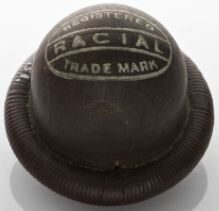Back in November 2020, I listened to Emma Barnett’s interview of Lesley Hall on BBC Radio 5 Live. The last question and answer drew my attention:
Emma Barnett: “Do we know why she [Stopes] was so committed to offering as she puts it reproductive choices, was it anything to do with eugenics?”
The Emma Barnett Show, BBC Sounds
Lesley Hall: “Very little… it was basically about enabling women to control their health and space out… to have healthy babies… she was very much about healthier babies and she saw that basically about enabling women to, you know, control their own motherhood and have space babies out and to be able to be better mothers”.
https://www.bbc.co.uk/sounds/play/m000pg5z accessed 18 November 2020
This article fact checks whether Stopes’ offering of reproductive choices had “very little” to do with eugenics.
There are two things that should be mentioned to put Hall’s remarks into context: Firstly, for those who don’t know, Hall is foremost amongst the experts of Marie Stopes. She is a Research Fellow at the Wellcome Library in London and the Honorary Associate Professor of the Department of Science and Technology Studies at University College London. As an historian, she has published books, articles and chapters on issues to do with sexuality and gender in the UK in the 19th and 20th centuries. Secondly, the question was put in the final thirty seconds of the interview and, while Hall was answering, the BBC played some “hurry up, we’re coming up to the break” music. It must have been very off-putting for Hall to answer the question in these circumstances.
Nonetheless, the first words were “very little” and, given the rest of the answer continued in the same vein, I have set out below some of the evidence to the contrary.
In 1921, Stopes set up the Society for Constructive Birth Control and Racial Progress (CBC). Its eugenic aims were outlined in the Tenets of the C.B.C. which included positive and negative eugenic aims. Tenets 9, 10 and 11 are undoubtedly eugenic, and specified the people who “should be prevented from procreating children at all, because of their individual ill-health, or the diseased and degenerate nature of the offspring that they may be expected to produce.”
The thrust of Tenets 9, 10 and 11 were reflected in her words (Chapter 20 of Stopes’ book Radiant Motherhood urged Parliament to pass laws to compulsorily sterilize undesirables) and in her actions (sending Radiant Motherhood to Frances Stevenson, private secretary to Prime Minister Lloyd George, with the appropriate sections highlighted and urging Stevenson to get him to read these passages). In Radiant Motherhood and elsewhere, Stopes used wide-ranging, unscientific and vituperative language to designate those who should be sterilized. If she had achieved her goals, for those in her target group “reproductive choice” would have been made by the state based on eugenic principles.
Stopes was not one to hand about waiting for politicians to act, so in her book Wise Parenthood she advocated the Gold Pin (or Gold Spring) as the means to effectively sterilize C3 mothers.
Next, in 1923 Stopes told the High Court — under oath — why she had set up the C.B.C:
“The object of the Society is, if possible, to counteract the steady evil which has been growing for a good many years of the reduction of the birth rate just on the part of the thrifty, wise, well-contented, and the generally sound members of our community, and the reckless breeding from the C.3 end, and the semi-feebleminded, the careless, who are proportionately increasing in our community because of the slowing of the birth rate at the other end of the social scale. Statistics show that every year the birth rate from the worst end of our community is increasing in proportion to the birth rate at the better end, and it was in order to try to right that grave social danger that I embarked upon this work.”
“The Trial of Marie Stopes” edited and with an introduction by Muriel Box. Femina Books (1967). Page 50.
Then there was the logo for the Mothers’ Clinic:

While the top part — “joyous and deliberate motherhood” — encompasses spacing babies, conception, contraception and family planning, the bottom line does not. “Racial darkness” reflects the problem that kept mainstream eugenicists awake at night: the differential birth rate. This was the fact that at the time the lowest quarter of society was creating around one-half of the next generation and, since heredity was all, it would lead to “race degeneration” or even “race suicide”.
Next, there was the brand-name of the cervical caps dispensed there: “ProRace” and later “Racial”:

Stopes was many things: “stupid” was not one of them. If her work commitment to offering reproductive choices really did have “very little” to do with eugenics, one wonders why she made this branding mistake not just once, but twice.
Conclusion: Hurry-up music or not, it is false to say that Stopes’ work had “very little” to do with eugenics.
Mark Sutherland
Author: Exterminating Poverty (with Neil Sutherland)
Curator: exterminatingpovertybook.com and hallidaysutherland.com
